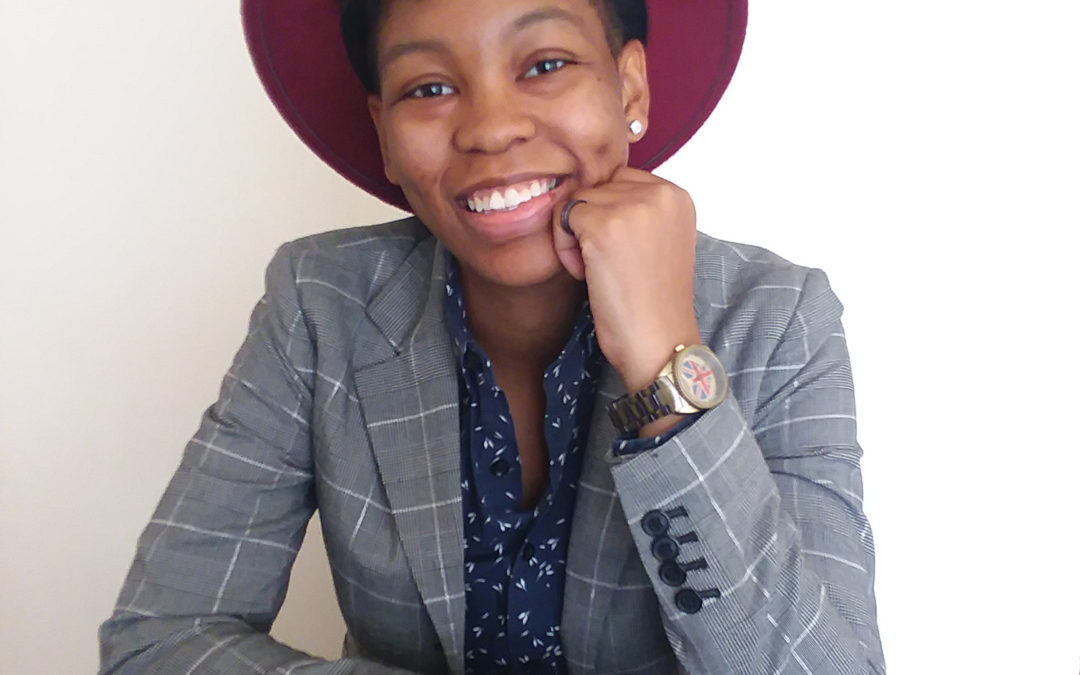She’s writing a novel. She’s kickstarting her own brand. She’s preparing to get her master’s degree. To say Lillian Gardner is determined is a bit of an understatement. Her passion for a career in the arts led her to the Gyo Obata Fellowship Program offered by the Regional Arts Commission of St. Louis.
“My career goals link directly to my life goals. I hope to achieve and keep on evolving as an individual,” Gardner explained, “through creating art, working in various organizations, fighting for justice, serving the community, and educating myself and others.”
The Gyo Obata Fellowship Program provides paid job training tailored specifically for undergraduate students pursuing careers in arts management. With major funding provided by the Gateway Foundation, it addresses the need for a more diverse, inclusive and equitable local nonprofit arts and culture sector by placing students directly at arts organizations in St. Louis.
When Gardner was selected as a Gyo Obata Fellow in 2019, she was placed at the National Blues Hall of Fame. During her time at the National Blues Museum, Gardner gained crucial marketing and programming experience – creating original educational content and marketing materials and conducting research.
“I had a really great experience. I felt challenged and respected. The people I worked with were very welcoming and inclusive,” she said.
Erin Simon, deputy director of the National Blue Museum, was equally enthusiastic about the Gyo Obata Fellowship experience. The organization will take part in the program again in 2022.
Simon explained that too many art and museum internships are unpaid – eliminating the opportunity for anyone who can’t work for free. When the chance arose to take part in the Gyo Obata Fellowship, she gladly opened her doors.
“Paid internships promote inclusion and are necessary to provide the next generation of arts and museum professionals with hands-on experience that is often expected (even when unrealistic) for entry-level positions,” she said.
For the future of the arts to be successful, Simon added, we hope they recognize that the field needs more diverse voices and find ways to bring contemporary relevance to audiences. It’s a sentiment shared by Gardner.
“We cannot stay in the past. We must move toward the future. We must show our youth and community a spectrum of tools to build any door they dream of,” she said, “not just open ones already there. That’s why inclusive and diverse representation in the arts is so important.”
At the time she applied to the Gyo Obata Fellowship, Gardner didn’t have high hopes. After receiving two recommendation letters from a mentor and professor, she finally started to believe in herself. Once she was selected and completed the program, her confidence soared.
“When I’m faced with difficult situations now, I address them head-on with courage, my wits, and with the knowledge that with every challenge comes the opportunity to grow and persevere,” she said. “The Fellowship gave me the opportunity to learn from and teach others – to inspire and be inspired by those you encounter every day.”
She also took away something from the program she wasn’t expecting.
“Getting to know, spending time, and hearing stories from the other nine Fellows in the program was an incredible experience. I am grateful for all of them sharing their gifts and unique, brilliant personalities with me and everyone involved.”
“Many people think you have to be an artist or musician to work in the arts, but there are many opportunities and pathways to work in an arts organization,” Simon said.” Creativity isn’t just limited to being an artist, and arts administration offers an excellent path for those interested in presenting innovative and transformative programs. The Gyo Obata Fellowship helps build such an important foundation for the future of the arts.”
As if Gardner wasn’t busy enough, she has big plans for the future. She hopes to start an organization to help area youth connect with the arts.
“The organization will be dedicated to connecting them to various art opportunities around the St. Louis area, providing them a space to create and establish connections through mentorships,” she said. “I always say I want to be the role model I wish I had when I was younger.”
Applications will open for the 2022 Gyo Obata Fellowship on Feb. 1, 2022. The application process will close on March 18. 2022. Learn more about the program.


Follow Us On Social Media